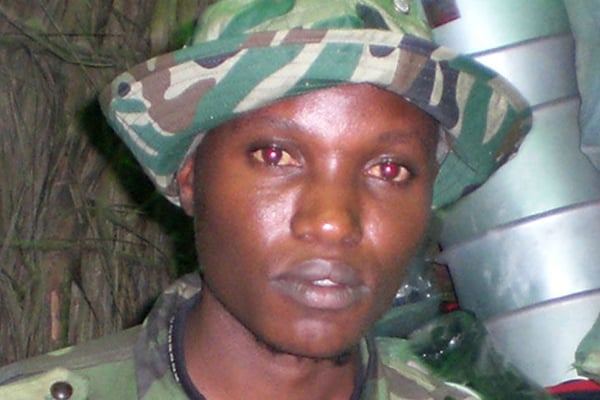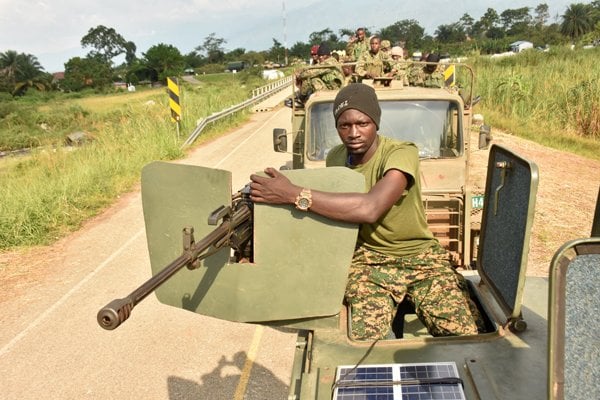Prime
Top ADF commander survives Congo bombing raid

ADF chief, Musa Seka Baluku
What you need to know:
- A military source said heavy earth-moving equipment had opened some roads, and it was expected that ground troops could this week advance closer to the bombed areas for close combat with ADF fighters.
Musa Seka Baluku catapulted to the top of Allied Democratic Forces (ADF) command after Tanzanian security agencies seized the group’s founding commander, Jamil Mukulu, born David Steven in April 2015.
The overall commander of Allied Democratic Forces (ADF), Musa Baluku, was not killed in last week’s bombing raid on his suspected camp, a highly-placed security source has said.
“I can confirm Baluku is alive; he did not die in the attacks,” said the source in Kampala, who had been briefed on the outcome of last Tuesday’s early morning aerial assault.
Initial intelligence had indicated that Baluku, whom Uganda considers its most-wanted terrorist leader, was at the group’s headquarters targeted during the November 30 attack.
UPDF Sukhoi Su-30 fighter jets and artillery in the early hours of last Tuesday pounded the forested bases of ADF in Beni and Ituri territories in eastern DR Congo.
Again, last Friday, the military flew MI24 attack helicopters to continue the assault that both Kinshasa and Kampala have described as a joint operation by Uganda’s military and Congolese counterparts.
UPDF has been cagey about the specific impact or destruction caused by its firepower, choosing instead to speak about the battlefield successes in general terms.
Brig Flavia Byekwaso last evening said she was awaiting briefing from the frontline and had no information on the whereabouts of Baluku.
She added: “Ever since the bombings [from last Tuesday], he (Baluku) has not spoken out [publicly]. So, we aren’t sure of that [his whereabouts] and unless he comes out to speak, that’s when we shall know whether he is alive or dead.”
The offensive code-named Operation Shujaa (Hero) is led by Maj Gen Kayanja Muhanga, the commander of UPDF’s Mountain Division, who last week said the bombardments were precise and “seriously” punished the enemy.
A source familiar with the operations earlier told this newspaper that the targets from the air raids were the ADF headquarters, and camps harbouring its foreign fighters and other recruits.
The bombs fell on Yayuwa, Tondoli, Beni I and Beni II camps --- all in North Kivu and Ituri territories, according to Maj Gen Kayanja.
On Saturday last week, Maj Peter Mugisa, the designated spokesperson of Operation Shujaa, told the media in Bundibugyo border town that a rough terrain and dense forest cover alongside a dearth of roads had impeded swift progress of the infantry.
The revelation raised question as to what the war planners did with information that a UPDF reconnaissance team to the mission area provided about likely environmental and other physical barriers.
A military source said heavy earth-moving equipment had opened some roads, and it was expected that ground troops could this week advance closer to the bombed areas for close combat with ADF fighters.
Maj Gen Kayanja had said the infantry had temporarily sheltered at a forward operating base inside DR Congo, about 19 kilometres from the Uganda border.
WHO’S MUSA BALUKU
Musa Seka Baluku catapulted to the top of Allied Democratic Forces (ADF) command after Tanzanian security agencies seized the group’s founding commander, Jamil Mukulu, born David Steven in April 2015.
Dar es Salaam later returned Mukulu, considered more moderate than Baluku, over to Uganda where he is incarcerated and facing trial for a litany of alleged capital offences.
An Islamic scholar of sorts, Baluku under Mukulu held a high reputation as the group’s most senior cleric and in that capacity presided over its Sharia courts, dispensing punishment and favours, justice and rewards, and determining who lives and who dies.
Thus, he built his own power base of loyal fighters that by the time he became overall commander of ADF, he held over the group like a colossus.
Once in-charge, and unlike incarcerated Mukulu who held political ambitions that moderated his beliefs and somewhat his violence, Baluku manifestly disposed to violent extremism.
In a March 2021 report for George Washington University’s Programme on Extremism titled, Islamic State in Congo, Tara Candland et al note that ADF’s dealings with IS may have started in 2017 before its formalisation in 2018 upon which IS’s central media units broadcast an April 2019 attack in DR Congo as the works of their Central Africa Province.
‘‘There is no ADF anymore. Allah willing, ADF ceased to exist a long time ago. [...] Currently, we are a province, the Central Africa Province which is one province among the numerous provinces that make up the Islamic State that is under the Caliph and Leader of all Muslims...Abu Ibrahim al-Hashimi al-Quraishi,’’ the authors write, quoting ADF leader Baluku’s comments in a Mujahideen Television video released in September 2020.
And in March, this year, the United States confirmed that the Ugandan rebel band had subsumed under the global IS terror network, posing a threat to Uganda and other countries in the Great Lakes Region.
Uganda blamed the ADF under his command for the string of deadly blasts in mainly Kampala last month and October, turning him into the most-wanted target for elimination or removal from Congo through Operation Shujaa.




